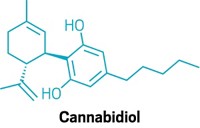Advertisement
Grab your lab coat. Let's get started
Welcome!
Welcome!
Create an account below to get 6 C&EN articles per month, receive newsletters and more - all free.
It seems this is your first time logging in online. Please enter the following information to continue.
As an ACS member you automatically get access to this site. All we need is few more details to create your reading experience.
Not you? Sign in with a different account.
Not you? Sign in with a different account.
ERROR 1
ERROR 1
ERROR 2
ERROR 2
ERROR 2
ERROR 2
ERROR 2
Password and Confirm password must match.
If you have an ACS member number, please enter it here so we can link this account to your membership. (optional)
ERROR 2
ACS values your privacy. By submitting your information, you are gaining access to C&EN and subscribing to our weekly newsletter. We use the information you provide to make your reading experience better, and we will never sell your data to third party members.
Food Ingredients
Goodbye brominated vegetable oil
US Food and Drug Administration bans the beverage ingredient because of health concerns
by Britt E. Erickson
July 11, 2024
| A version of this story appeared in
Volume 102, Issue 21

Brominated vegetable oil (BVO), an ingredient once widely used to prevent citrus flavoring from floating to the top of beverages, “is no longer considered safe,” the US Food and Drug Administration says in a rule finalized July 2.
The rule bans BVO as an additive in food and beverages sold in the US, effective Aug. 2. But the FDA says it won’t enforce the ban until August 2025, to give industry time to reformulate and use up existing supplies of products that contain BVO.
Major beverage manufacturers have already stopped using BVO in their products, but some off-brand orange sodas and juices still contain the ingredient, according to the Center for Science in the Public Interest, a consumer advocacy group.
The FDA’s decision to ban BVO was prompted by a study in rats that linked oral consumption of the chemical to increased bromine levels in several tissues and adverse effects on the thyroid (Food Chem. Toxicol. 2022, DOI: 10.1016/j.fct.2022.113137).
“Reassessing the safety of chemicals that have been previously authorized for use in or with foods, as new, relevant data become available, is a priority for the FDA,” Jim Jones, deputy commissioner for human foods at the FDA, says in a statement.
Advocacy groups welcome the BVO ban but say the FDA should have done it decades ago.
The European Union banned the ingredient in 2008, and Japan followed suit in 2010. “The FDA’s belated action on BVO underscores the urgent need for more rigorous and timely oversight of food additives,” Scott Faber, senior vice president of government affairs at the Environmental Working Group, says in a statement.





Join the conversation
Contact the reporter
Submit a Letter to the Editor for publication
Engage with us on Twitter